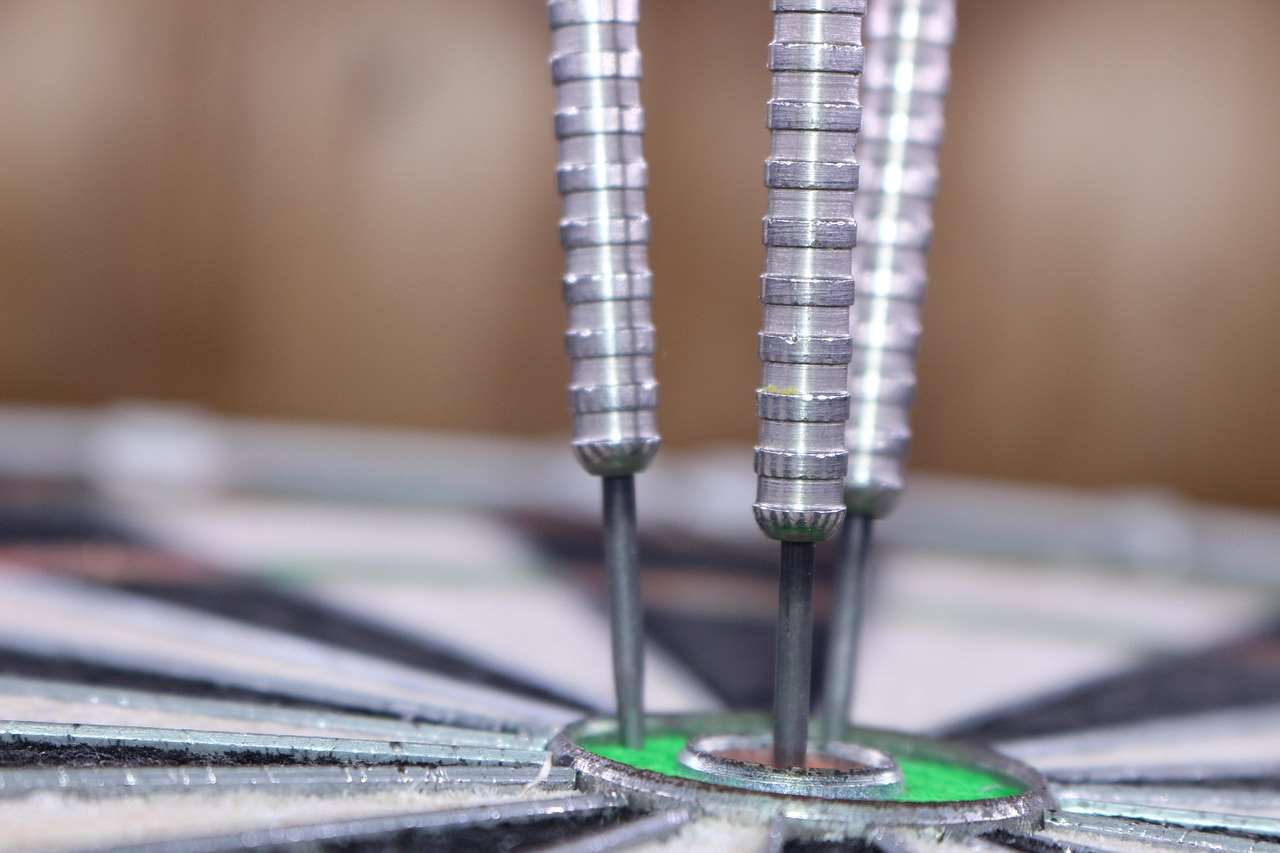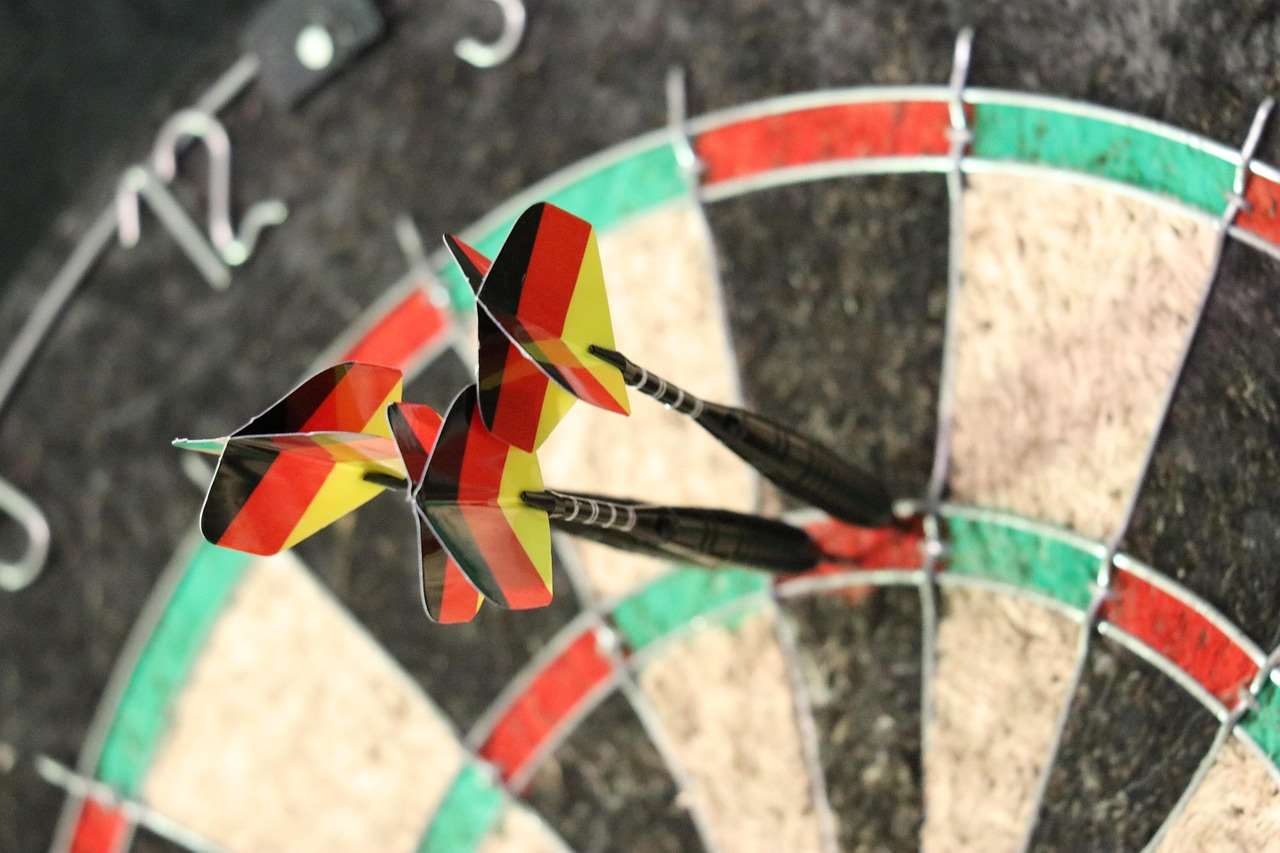The impact of travel on player form is significant, often leading to decreased performance due to fatigue, disrupted sleep patterns, and altered routines. This article will explore the various ways travel affects athletes, offering insights into mitigating these negative effects and maintaining peak performance, including tips on jet lag management, nutrition strategies, and mental preparation.
⚠️ Still Using Pen & Paper (or a Chalkboard)?! ⚠️
Step into the future! The Dart Counter App handles all the scoring, suggests checkouts, and tracks your stats automatically. It's easier than you think!
Try the Smart Dart Counter App FREE!Ready for an upgrade? Click above!
Understanding the Impact Of Travel On Player Form
For professional athletes, consistent high-level performance is paramount. However, the demanding schedules often involve frequent and extensive travel, which can significantly influence an athlete’s physical and mental state. Understanding the multifaceted impact of travel on player form is crucial for both players and their support teams to develop effective strategies for maintaining optimal performance levels.

Travel-related fatigue, disrupted sleep patterns, dietary inconsistencies, and the psychological stress of being away from home all contribute to decreased performance. Ignoring these factors can lead to subpar results, increased risk of injury, and even burnout. Analyzing dart player form statistics can help to identify trends related to travel and performance.
Physiological Effects of Travel on Athletes
Jet Lag and Circadian Rhythm Disruption
One of the most well-known physiological effects of travel is jet lag. This occurs when the body’s natural circadian rhythm, which regulates sleep-wake cycles and other bodily functions, is disrupted by crossing multiple time zones. The symptoms of jet lag can include fatigue, insomnia, difficulty concentrating, gastrointestinal issues, and decreased athletic performance.
- Westward travel is generally easier to adjust to than eastward travel, as it involves delaying the body’s natural clock rather than advancing it.
- The severity of jet lag increases with the number of time zones crossed.
- Individual factors, such as age, sleep habits, and overall health, can also influence the severity of jet lag.
The disruption of the circadian rhythm also impacts hormone production, particularly melatonin, which regulates sleep. Reduced melatonin levels can further exacerbate sleep disturbances and negatively affect recovery.
Dehydration and Nutrition Imbalances
Travel can also contribute to dehydration, especially during air travel where cabin air is often dry. Dehydration can lead to decreased blood volume, reduced muscle function, and impaired cognitive performance. Furthermore, maintaining a consistent and optimal nutrition plan can be challenging while traveling. Changes in food availability, meal timing, and dietary habits can disrupt nutrient intake and lead to energy imbalances.
Athletes need to be proactive in managing their hydration and nutrition while traveling. This includes:
- Drinking plenty of water throughout the journey.
- Packing healthy snacks and meals to avoid relying on unhealthy airport or hotel options.
- Maintaining consistent meal times as much as possible.
- Considering electrolyte supplements to replace lost minerals.
Compromised Immune Function
The stress of travel, coupled with sleep deprivation and exposure to new environments, can weaken the immune system. This makes athletes more susceptible to illness, which can obviously derail training and performance. Long flights in crowded airplanes increase exposure to airborne pathogens, further increasing the risk of infection. Furthermore, the disruption of the gut microbiome due to changes in diet and environment can also weaken immune function.

Psychological Impact of Travel on Athletes
Stress and Anxiety
Beyond the physiological effects, travel can also have a significant psychological impact. The logistical challenges of travel, such as packing, navigating airports, and dealing with delays, can induce stress and anxiety. Being away from familiar surroundings, family, and support networks can also contribute to feelings of isolation and homesickness.
Athletes who are prone to anxiety or have obsessive-compulsive tendencies may experience heightened stress levels during travel, particularly if they have specific routines or rituals that are disrupted. Maintaining a consistent mental routine and having strategies for managing stress are crucial for mitigating these negative psychological effects. Consider Darts Betting And Fantasy Leagues Guide for entertainment during downtime.
Mental Fatigue and Reduced Cognitive Function
Mental fatigue is another common consequence of travel. The combination of sleep deprivation, stress, and cognitive overload can impair cognitive functions such as attention, decision-making, and reaction time. These impairments can have a direct impact on athletic performance, particularly in sports that require quick thinking and precise execution.
Strategies for combating mental fatigue include:
- Prioritizing sleep and rest whenever possible.
- Practicing mindfulness or meditation techniques to reduce stress and improve focus.
- Breaking down complex tasks into smaller, more manageable steps.
- Avoiding excessive screen time, especially before bed.
Strategies to Mitigate the Impact Of Travel On Player Form
Optimizing Sleep Schedules
One of the most effective strategies for mitigating the impact of travel on player form is to optimize sleep schedules. This involves gradually adjusting sleep-wake times in the days leading up to travel, particularly when crossing multiple time zones. Upon arrival, athletes should try to adapt to the local time as quickly as possible by exposing themselves to natural light during the day and avoiding bright screens before bed.
Other sleep-enhancing strategies include:
- Creating a relaxing bedtime routine.
- Using blackout curtains or eye masks to block out light.
- Using earplugs or white noise to reduce noise distractions.
- Considering melatonin supplements to help regulate the sleep-wake cycle (under the guidance of a medical professional).

Hydration and Nutrition Planning
Maintaining adequate hydration and a balanced nutrition plan is crucial for combating the negative effects of travel. Athletes should drink plenty of water throughout the journey and continue to prioritize hydration upon arrival. They should also pack healthy snacks and meals to avoid relying on unhealthy options. Focusing on nutrient-dense foods that are rich in antioxidants and anti-inflammatory compounds can help to support immune function and reduce muscle soreness.
Specific nutrition strategies for travel include:
- Consuming carbohydrate-rich foods to replenish glycogen stores.
- Eating protein-rich foods to support muscle recovery.
- Incorporating healthy fats to provide sustained energy.
- Avoiding processed foods, sugary drinks, and excessive caffeine.
Stress Management Techniques
Effective stress management is essential for mitigating the psychological impact of travel. Athletes should develop coping mechanisms for dealing with the logistical challenges of travel and the feelings of isolation that can arise from being away from home. These coping mechanisms may include:
- Practicing mindfulness or meditation techniques.
- Engaging in relaxing activities such as reading, listening to music, or spending time in nature.
- Connecting with friends and family through phone calls or video chats.
- Seeking support from a sports psychologist or counselor.
Furthermore, proactively planning for potential travel-related stressors can help to reduce anxiety. This may involve creating detailed itineraries, packing efficiently, and having backup plans in case of delays or disruptions. Understanding how to analyze dart player form can allow teams to adjust expectations based on travel schedules.

Technological Aids for Travel Recovery
In recent years, several technological aids have emerged to assist athletes in recovering from the impact of travel on player form. These include:
- Compression garments: These garments can help to improve blood flow, reduce muscle soreness, and prevent swelling during long flights.
- Portable massage devices: These devices can be used to relieve muscle tension and promote relaxation.
- Blue light blocking glasses: These glasses can help to reduce exposure to blue light from electronic devices, which can interfere with sleep.
- Sleep tracking apps: These apps can be used to monitor sleep patterns and identify potential sleep disturbances.
Personalized Recovery Plans
Recognizing that each athlete responds differently to travel, personalized recovery plans are paramount. Coaches and trainers should collaborate with athletes to develop individualized strategies that address their specific needs and preferences. This may involve adjusting training schedules, modifying dietary recommendations, and incorporating specific recovery modalities.
Furthermore, ongoing monitoring of athlete well-being is crucial for identifying potential issues and making timely adjustments to the recovery plan. This may involve tracking sleep patterns, monitoring mood and energy levels, and assessing performance metrics. By taking a proactive and personalized approach, teams can help athletes to mitigate the negative impact of travel on player form and maintain optimal performance levels.

Conclusion
The impact of travel on player form is undeniable, presenting significant challenges to athletes seeking to maintain peak performance. From physiological disruptions like jet lag and dehydration to psychological stressors and mental fatigue, the effects of travel can be wide-ranging and detrimental. However, by understanding these challenges and implementing proactive strategies, athletes and their support teams can effectively mitigate the negative impacts of travel.
Optimizing sleep schedules, prioritizing hydration and nutrition, managing stress through mindfulness and relaxation techniques, and utilizing technological aids can all contribute to improved recovery and sustained performance. Furthermore, personalized recovery plans that are tailored to individual athlete needs and preferences are crucial for maximizing the effectiveness of these strategies. By embracing a holistic approach that addresses both the physical and mental aspects of travel, athletes can navigate the demands of their schedules and consistently perform at their best. Want to learn more about player average score analysis darts? Start here.
If you’re an athlete, coach, or sports professional seeking to optimize performance despite demanding travel schedules, take action today! Implement the strategies outlined in this article, and consider consulting with a sports psychologist or nutritionist for personalized guidance. Your performance depends on it!
Hi, I’m Dieter, and I created Dartcounter (Dartcounterapp.com). My motivation wasn’t being a darts expert – quite the opposite! When I first started playing, I loved the game but found keeping accurate scores and tracking stats difficult and distracting.
I figured I couldn’t be the only one struggling with this. So, I decided to build a solution: an easy-to-use application that everyone, no matter their experience level, could use to manage scoring effortlessly.
My goal for Dartcounter was simple: let the app handle the numbers – the scoring, the averages, the stats, even checkout suggestions – so players could focus purely on their throw and enjoying the game. It began as a way to solve my own beginner’s problem, and I’m thrilled it has grown into a helpful tool for the wider darts community.